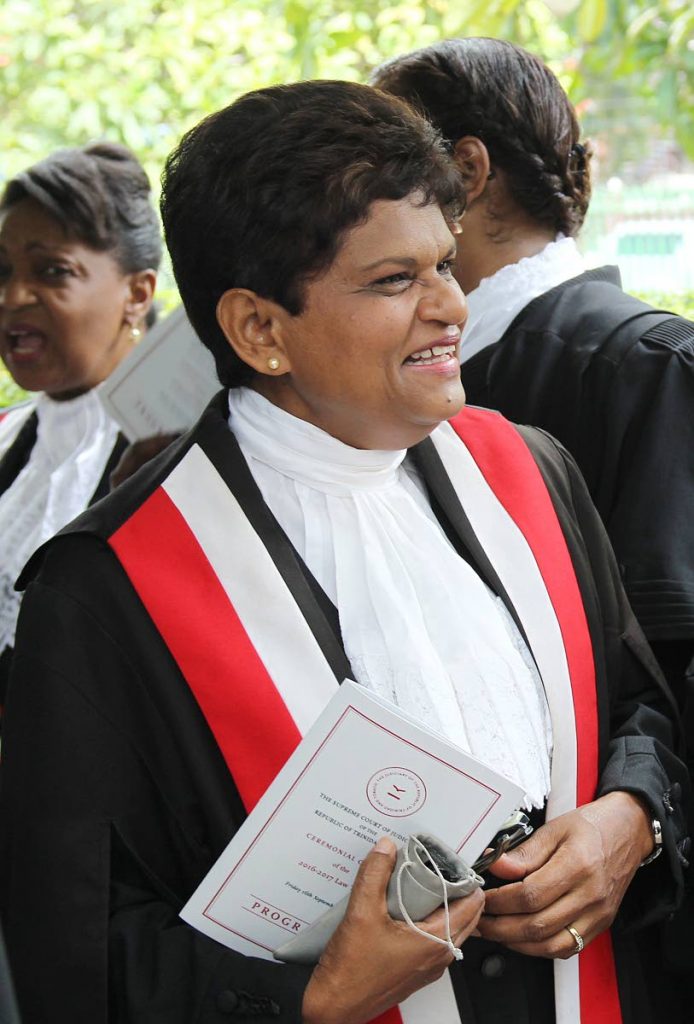Appeal Court hears arguments on DNA evidence in rape case

THE COURT of Appeal has reserved its decision in a rape appeal which involves the use of DNA evidence in criminal trials.
The appeal was brought by a man who was convicted in 2018 of raping a minor in 2004.
Emerson “Roger” Richardson had been found not guilty of two counts of sexual intercourse with a female under 14, but guilty of one count of sexual intercourse with a female under 14.
Justice Hayden St Clair-Douglas sentenced him to 23 years’ hard labour.
At his appeal, which will be used to assist in providing guidance to judges and prosecutors in future cases involving DNA evidence, Richardson advanced five complaints about the trial judge’s handling of his case.
Justices of Appeal Alice Yorke-Soo Hon, Mark Mohammed and Maria Wilson are presiding over his appeal.
Richardson is represented by attorneys Senior Counsel Sophia Chote and Allan Anderson. Assistant DPP Sabrina Dougdeen-Jaglal and Nigel Pilgrim.
Among his complaints are that St Clair-Douglas erred in law by allowing him to be tried on fresh evidence which was not disclosed at the preliminary inquiry. He said he was only given a day's notice after the start of the trial to prepare his defence of the fresh evidence. It was on this evidence, Richardson was convicted.
The State countered that Richardson would have known of the incident to which the new count of rape was linked because of the evidence given at the preliminary inquiry and a conversation with the girl’s mother when he was caught after the act.
The prosecutors argued he would have also known at the time that human spermatozoa was found on the girl’s vaginal swab and he got the scientific report from the Forensic Science Centre (FSC) a week before the trial and before the expert scientific officer gave evidence. They said he could have asked for an adjournment, but did not, so he cannot now complain of the additional count being introduced, or the evidence to support it.
According to Richardson’s arguments, the semen linked to him found its way onto clothing belonging to the alleged victim after he had consensual sex with his accuser’s mother, who slept on the same bed as his accuser.
At Thursday’s virtual hearing, Pilgrim said his defence of “innocent transference” of the sperm into the girl’s vagina ought not to have changed because of the new disclosure.
“A summation is not a symphony or a sonic,” Pilgrim said, adding that on the basis of the guidance to judges on how to give directions to juries on DNA evidence, the judge in Richardson’s case could not go beyond the issue that was raised at trial,
“The judge could not add or supplant anything that was not raised in the defence,” he said.
Another of Richardson’s complaints was that the judge erred by failing to give adequate directions on the use of DNA evidence and it was because of this “grave” error that he was convicted by the jury.
His attorneys also argued that the judge should have held an admissibility-of-evidence hearing to determine if the DNA evidence should have been allowed.
The attorneys also provided responses to questions posed by the judges on the use of random-occurrence ratios by DNA experts.
Those types of statistics use a genetic database of a cross-section of a country’s population intended to link samples collected by crime scene investigators to individuals by estimating the probability of an unrelated person, randomly picked from the general population, matching the genetic material derived from the sample.
The judges also questioned whether such a database had been established in this country for use in such analysis.
During the submissions, the judges were told the FSC was not an internationally accredited DNA laboratory, nor was it at the time when Richardson’s sperm sample was tested.
Chote said if there was a lack of accreditation, it was a factor that the jury can be asked to take into account that there may be an expert who followed all the rules in performing the necessary tests.
“A jury in that circumstance can consider if to accept the evidence or not.”
She said it cannot be said to be asking too much for high standards to be adopted, since the justice system could not settle for second-best.
She said DNA evidence was a particular species of scientific evidence when relied on, and in Richardson’s case, apart from this evidence, there was nothing to support the third count on which he was convicted.
In response, the State contends that notwithstanding the FSC was not internationally accredited, the Evidence Act and Administration of Justice Act allows for the reports of its staff, who are considered experts, to be automatically admissible in the criminal courts locally.
Also making submissions on the use of DNA evidence in criminal trials was the Public Defenders Department. Deputy Public Defender Raphael Morgan said it was the duty of an expert to explain what DNA was and for the expert to tell the jury of their expertise in the field.
He also said on the statistical capability of the FSC, the state-run laboratory did not have the statistics to generate accurate reports on the issue and used the FBI database, comprising Jamaican, TT and Bahamian data.
Since it is not now accredited, it does not have access to the FBI database.
At the end of Thursday’s hearing, the judges said they will reserve their decision and will contact the attorneys when they intend to deliver it.

Comments
"Appeal Court hears arguments on DNA evidence in rape case"